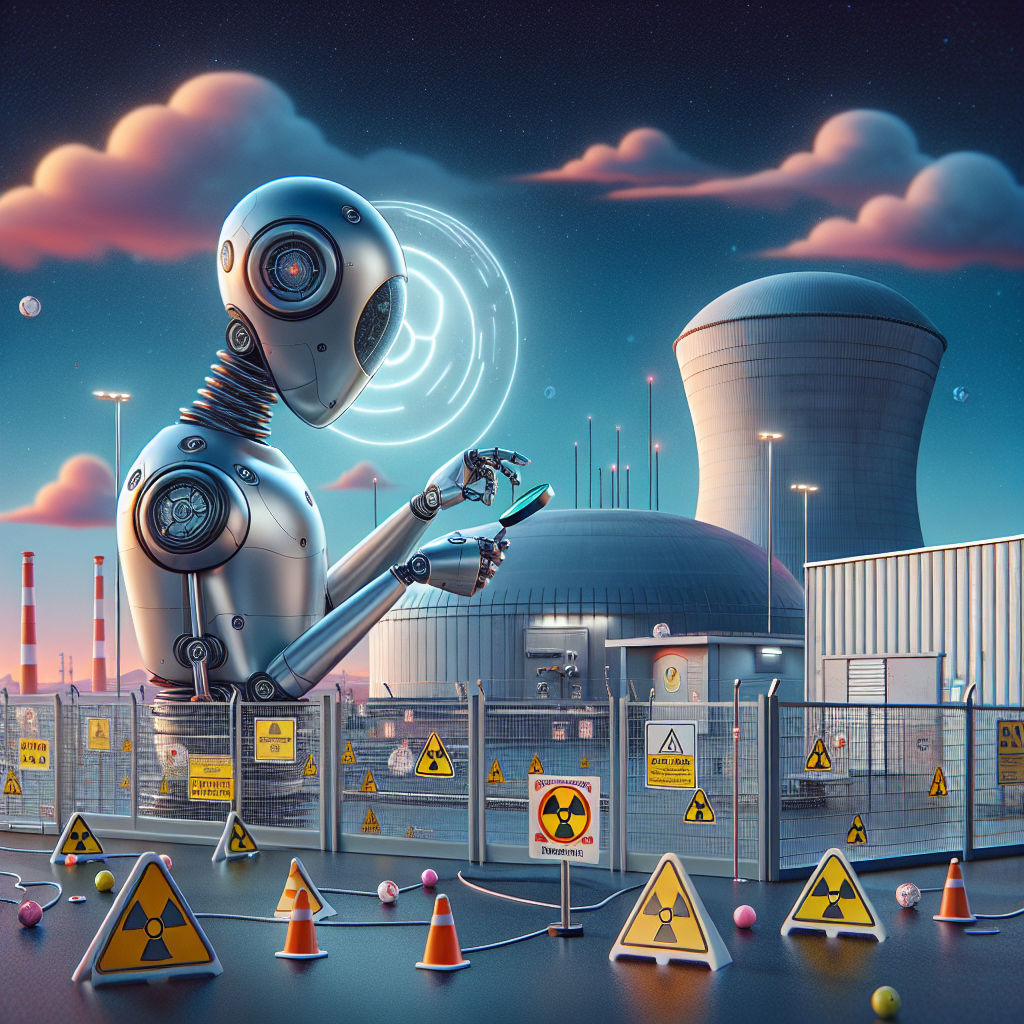IAEA Completes Nuclear Security Assessment in Romania, Commends Enhanced Measures
Romania's two operational nuclear power units at Cernavoda currently provide approximately 19% of the nation's energy, with plans underway to expand its nuclear energy programme.

The International Atomic Energy Agency (IAEA) concluded an International Physical Protection Advisory Service (IPPAS) mission in Romania, focusing on assessing and strengthening the country’s nuclear security regime. The mission, hosted by Romania’s National Commission for Nuclear Activities Control (CNCAN), took place from December 2 to December 13, 2024.
The ten-person expert team evaluated the physical protection and computer security measures at Romanian nuclear facilities and reviewed the protocols for the transportation of nuclear material. Key site visits included the Cernavoda Nuclear Power Plant and the Pitesti Nuclear Fuel Plant in Mioveni. Romania's two operational nuclear power units at Cernavoda currently provide approximately 19% of the nation's energy, with plans underway to expand its nuclear energy programme.
Romania's Commitment to Nuclear Security
Romania’s engagement with the IAEA reflects its long-standing commitment to nuclear security. The recent IPPAS mission marks the fourth such assessment in the country, following previous missions in 1997, 2002, and 2012. Romania has been a proactive participant in international nuclear security frameworks, ratifying the 2005 Amendment to the Convention on the Physical Protection of Nuclear Material (A/CPPNM) in 2007. This amendment obligates member states to implement robust physical protection measures across nuclear facilities and materials in peaceful use, storage, or transit.
Key Findings and Recommendations
The IPPAS team, comprising experts from Canada, the Czech Republic, Germany, Hungary, Lithuania, the Netherlands, the UK, the USA, and an IAEA staff member, provided a comprehensive evaluation of Romania's nuclear security practices. Led by Nancy Fragoyannis, Senior Advisor for Nonproliferation and International Nuclear Security at the US Nuclear Regulatory Commission, the team identified commendable practices and offered actionable recommendations.
“One of the benefits of hosting an IPPAS mission is engaging with the international team of experts and sharing experiences and good practices from their respective security programmes. Hosting the fourth IPPAS mission is a strong indicator from Romania of their willingness to continuously assess its nuclear security regime,” said Fragoyannis.
Discussions were held with representatives from CNCAN, the Romanian Intelligence Service, Ministry of Defence, Romanian Gendarmerie, Romanian Police, General Inspectorate for Emergency Situations, and Nuclearelectrica. The team noted significant improvements in Romania’s nuclear security regime, highlighting the effective collaboration among these entities.
A Global Standard for Nuclear Security
Elena Buglova, Director of the IAEA Division of Nuclear Security, emphasized the importance of vigilance in light of evolving international security challenges. “Evolving threats and a changing security situation internationally require vigilance from countries to prevent, detect, and respond to malicious acts,” she said. “Romania’s continued efforts to strengthen physical protection and computer security in critical national infrastructure contribute to maintaining the highest levels of nuclear security.”
The mission identified several good practices that could serve as a benchmark for other IAEA Member States. Recommendations included enhancements to Romania’s approach to managing cyber threats and further integration of international best practices.
Romania’s Response and Commitment
Cantemir Ciurea Ercau, President of CNCAN, expressed gratitude to the IPPAS team for their thorough analysis and guidance. “The recommendations and suggestions provided through this mission are of utmost importance for strengthening Romania's nuclear security regime. CNCAN is committed to implementing the necessary measures to address these recommendations and to continuing our efforts to improve the physical protection of nuclear and radioactive materials, as well as associated facilities,” he said.
Looking Ahead
Romania’s proactive stance on nuclear security demonstrates its role as a regional leader in implementing advanced safeguards. With plans to expand its nuclear energy infrastructure, the country aims to integrate the latest physical protection measures to align with international standards.
By hosting this mission, Romania underscores its commitment to continuous improvement and collaboration with global partners, reinforcing the shared goal of ensuring the safe and secure use of nuclear energy worldwide.
ALSO READ
Political Tension Peaks in Romania as Election Faces New Challenges
Romania Reruns Presidential Election Amid Chaos
Romania's Democracy in Crisis: Protests Erupt Over Annulled Election
IAEA Announces Global ConvEx-3 Nuclear Emergency Exercise Hosted by Romania in May 2025
Romania's Electoral Turmoil: Protests Erupt Over Voided Election










